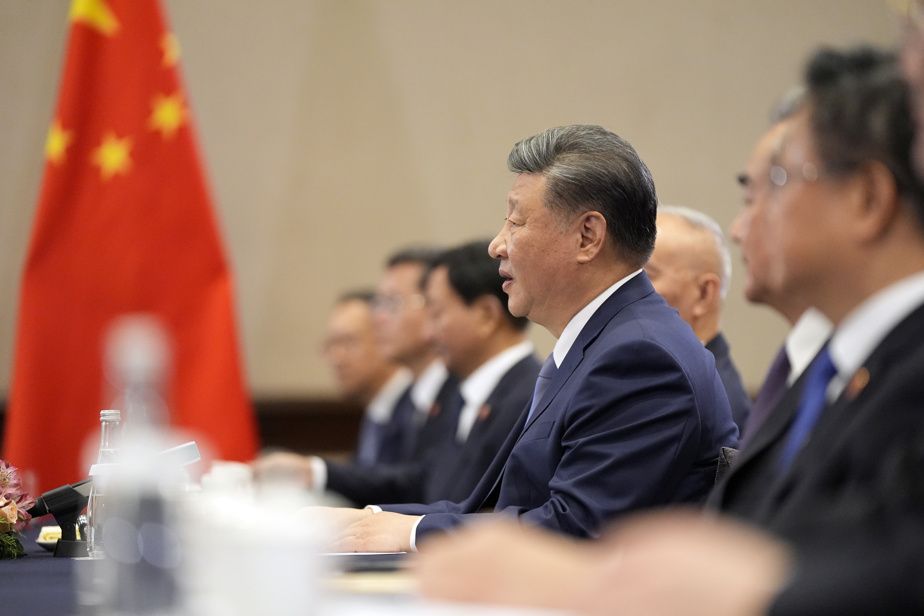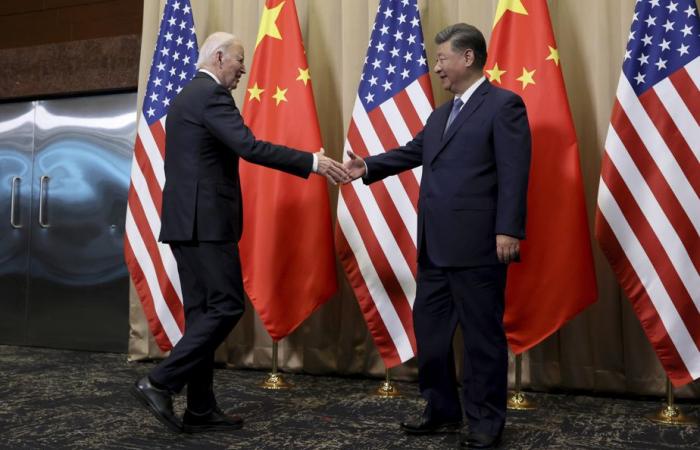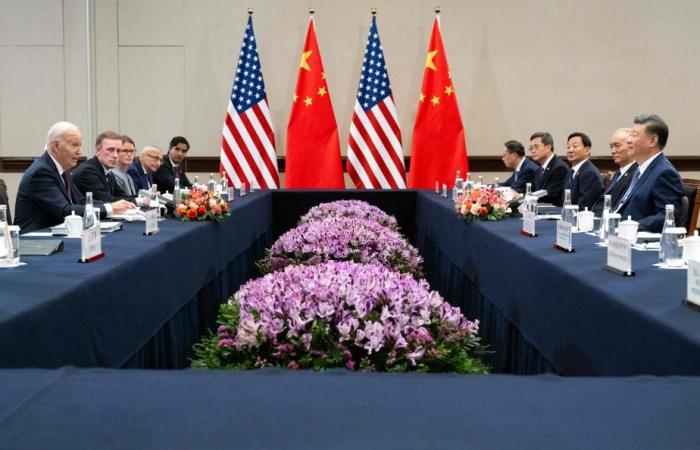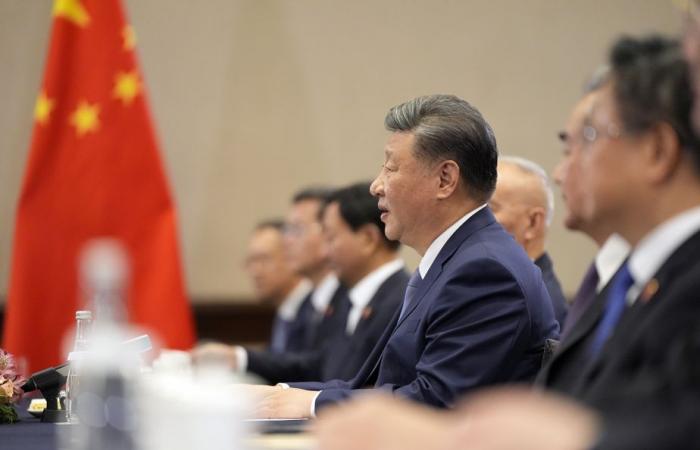(Lima) Chinese President Xi Jinping assured his American counterpart Joe Biden that Beijing will work for a “smooth transition” in China-United States relations, Saturday during a final official tête-à-tête between the two leaders , after an Asia-Pacific summit in a context of uncertainties linked to the re-election of Donald Trump.
Posted at 4:36 p.m.
Sandra FERRER and Philippe BERNES-LASSERRE
Agence France-Presse
The two countries should “continue to explore the right path” to get along and “achieve long-term peaceful coexistence,” added Mr. Xi, quoted by the state agency Xinhua, during the meeting which takes place at the end of the Asia-Pacific Economic Cooperation (APEC) summit.
Joe Biden arrived a little before 4 p.m. local time (4 p.m. Eastern time) at the hotel where Xi Jinping is staying, for this last meeting before Donald Trump’s return to the White House in January.
PHOTO SAUL LOEB, AGENCE FRANCE-PRESSE
U.S. President Joe Biden (first from left) meets with Chinese President Xi Jinping (first from right) on the sidelines of the Asia-Pacific Economic Cooperation (APEC) summit in Lima, Peru.
The two leaders have been in the Peruvian capital since Thursday to participate with other heads of state and government in the 31e edition of the APEC summit, which brings together 21 economies accounting for 60% of global GDP.
During a closed-door discussion session in the morning, President Xi discussed “challenges such as geopolitics, unilateralism and rising protectionism.” In this context, “we must unite and cooperate,” he told the leaders of the Pacific economies, quoted by Chinese state television CCTV.

PHOTO MANUEL BALCE CENETA, ASSOCIATED PRESS
Chinese President Xi Jinping (center)
Towards “isolationism and denial”
Closing the summit, Peruvian President Dina Boluarte welcomed a consensus reached on the “Lima road map”, to “promote the transition to the formal and global economy” from the informal economy, prevalent in several countries of the region. Then she handed over the presidency of APEC to South Korea, which will host the summit in 2025.
The Biden-Xi meeting is their third and final, before the 81-year-old Democrat cedes the presidency in January to Donald Trump. According to American officials, this tête-à-tête aims to capitalize on the historic meeting which helped ease tensions a year ago, at the same annual APEC summit in San Francisco.
Relations between China and the United States have deteriorated in recent years, due to disagreements over trade, the status of Taiwan, human rights and technological competition. However, the bilateral dialogue was maintained as best it could.
American National Security Advisor Jake Sullivan stressed this week “the importance” of the meeting between the two leaders, in order to “manage relations [bilatérales] in this delicate period of transition.
According to Mr. Sullivan, the issues of tensions in the South China Sea and the maintenance of lines of communication – military in particular – should also be discussed during the tête-à-tête, “not just a meeting to say goodbye”.
“Turbulence”, and unpredictability
The shadow of Donald Trump, who has already appointed hardliners against Beijing to his team, must have hung over their discussions.
During his campaign, the billionaire promised to protect American industry, threatening to impose tariffs of 10 to 20% on imported products and up to 60% on those from China.
During his first term (2017-2021), he had already deeply disrupted bilateral economic relations, by triggering a trade war to force Beijing to buy American products and rebalance a trade balance.
Already on Friday, Xi Jinping warned “against the rise of unilateralism and protectionism” and judged that the world had “entered a new period of turbulence and transformation”.
Concern relayed by Joe Biden, who estimated, on the sidelines of a meeting with his allies in the Pacific region Japan and South Korea, that “we have now reached a moment of important political change”. After Lima, Joe Biden and Xi Jinping will travel to Brazil to participate in the G20.








